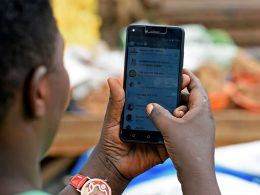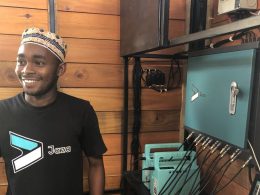By Mark Kawalya
Starlink, Elon Musk’s satellite-based internet service provider, has entered into a partnership with the Rwandan government that will see the firm provide high-speed internet to schools in the country. According to Paula Ingabire, Rwanda’s ICT Minister, more than 500 schools will benefit from the pilot project.
The Minister, while appearing before lawmakers during a plenary session of the Chamber of Deputies, said that Starlink’s internet capacity is high and affordable. She was answering questions affecting the ICT sector, including why many primary and secondary schools have no access to the internet while those that do are burdened by exorbitant costs.
“Among the services we are undertaking, which we agreed upon with Starlink last year [2022], we are going to start with at least 500 schools so that at least such internet will be tested, and distributed there,” she said. In response to lawmakers’ concerns over its affordability, Ingabire pointed out that, overall, based on its huge capacity and high speed, entities that need a lot of internet are the ones targeted by Starlink internet pilots.
Developed by SpaceX, Starlink is a low-cost internet connectivity service for deployment in remote locations. The Rwanda Space Agency (RSA) issued a license to Starlink in February, giving the firm rights to operate in the country from 2023.
In terms of comparison, Starlink offers a more affordable and reliable internet service when compared to other operators in the country. Users will have access to bandwidth of 150 megabits per second (Mbps).
High-speed, reliable internet that is also affordable is transforming the educational landscape in Rwanda. Diana Nawatti, the principal at Mother Mary International School in Kigali, said that internet-based learning gives students access to more information at the click of a button. Learning is also fun and more relatable thanks to the internet.
This development comes on the heels of a government plan to connect 3,000 schools to the internet by 2024. The country has 6,756 schools, with about 3,000 not connected to the internet. Starlink’s internet service will be a key tool that will increase connectivity competitiveness while also bridging the digital gap.








